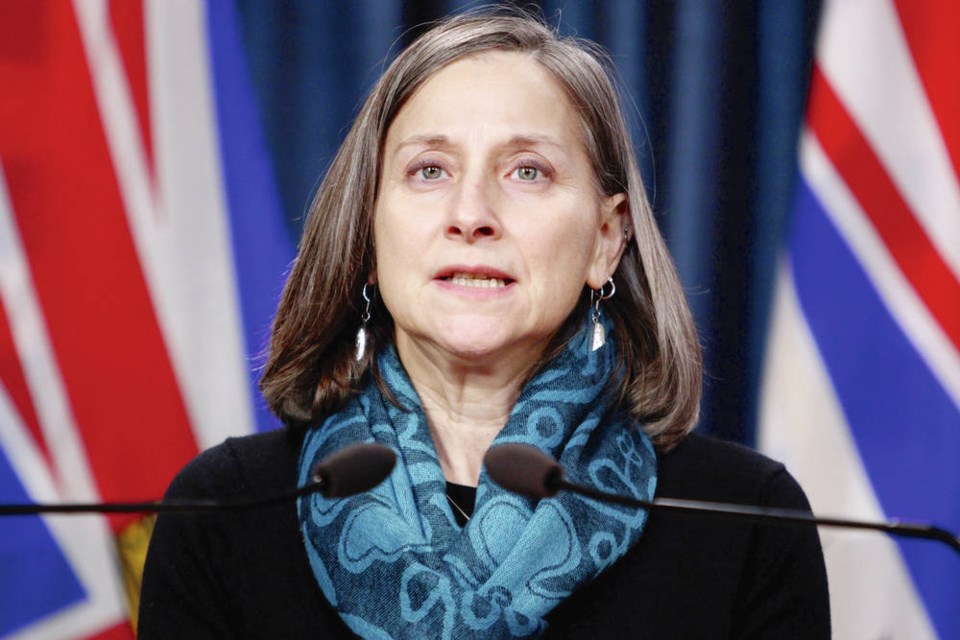B.C. recorded 1,716 deaths from illicit drug overdoses last year, the most deaths in a single year due to an “unnatural” cause, prompting calls from the province and chief coroner for decriminalization of drug possession.
Victoria had the third-highest number of illicit drug poisonings in the province — 122 — after Vancouver at 408 and Surrey at 214. The 1,716 deaths provincewide represent almost five a day, a 74 per cent increase from the previous year.
The toxic illicit drug supply killed more people than motor-vehicle crashes, homicides, suicides and prescription-drug-related deaths combined.
On Thursday, chief coroner Lisa Lapointe called the death rate “alarming” and said it’s time to decriminalize the simple possession of drugs, as part of a comprehensive approach that includes harm-reduction measures, a safe supply of pharmaceutical alternatives, and regulated, affordable and accessible treatment and recovery beds.
“It’s clear that urgent change is needed,” Lapointe said.
“What we’ve seen is decades and decades of treating problematic substance use disorder, addiction, as a criminal activity, and demonizing people who use substances as bad people and punishing them.”
B.C. wants Ottawa to allow a province-wide exemption from federal drug laws to decriminalize possession of small amounts of illicit drugs for personal use — meaning no jail time but possibly penalties such as fines. Trafficking and making illicit drugs would remain illegal.
B.C. Mental Health and Addictions Minister Sheila Malcolmson has sent a letter to federal Health Minister Patty Hajdu seeking an exemption from the Controlled Drugs and Substances Act.
“Whether it’s Canada-wide or in B.C., it is in the federal government’s power to act and that is what we are encouraging them to do,” Malcolmson said.
The benefits of decriminalization are twofold, said Malcolmson. “One is that the police are able then to concentrate on more serious crime and particularly go after drug traffickers, and, at the same time, removing an impediment, the stigma that prevents people from admitting that they have an addiction problem and reaching out for help.”
Provincial health officer Dr. Bonnie Henry suggested steps toward decriminalization in 2019. The Canadian Association of Chiefs of Police made a similar request last July.
The vast majority of the overdose deaths involve men between 19 and 59 dying inside a private residence. The drug fentanyl, found in more than 86 per cent of overdose deaths since 2017, continues to drive the death toll, followed by cocaine, methamphetamines, other opioids and alcohol.
Lapointe blamed decades of criminalization of drugs, an increasingly toxic illicit-drug market and a lack of timely access to affordable treatment and recovery for the overdose-death crisis, which was declared a public-health emergency in 2016.
She said the pandemic has reduced access to harm-reduction measures such as Naloxone, overdose-prevention sites, supervised consumption sites and drug-checking services that had been working to reduce overdose deaths.
At the same time that it has left people isolated and using drugs alone, the pandemic has led to the increased toxicity of street drugs — in part due to border closures, disrupted supply chains and increased domestic production.
The province is moving in the right direction with a standalone Ministry for Mental Health and Addictions, more publicly funded treatment beds and nurses being trained to provide safe drugs, Lapointe said, but “there needs to be a plan to address this in a meaningful long-term way.”
While making her comments Thursday, Lapointe was joined by Chief Const. Mike Serr of the Abbotsford Police Department and Leslie McBain, co-founder of Moms Stop the Harm.
Serr, who co-chairs the drug advisory committee of the Canadian Association of Chiefs of Police, said police have de facto decriminalized personal possession in B.C. for several years.
McBain, whose 25-year-old son Jordan Miller died of a drug overdose in 2014, urged Premier John Horgan and the federal government to do more.



